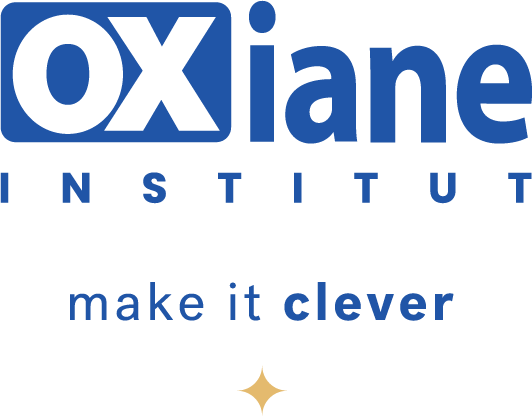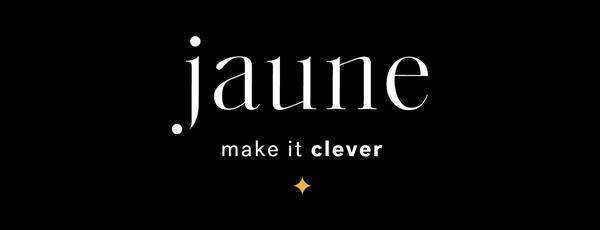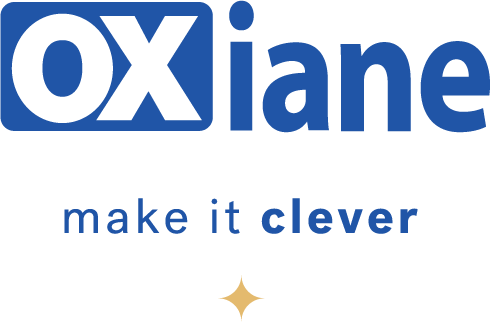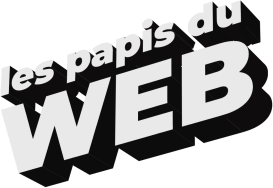TECHNICAL & ENTERPRISE ARCHITECTURE
« Establish the necessary technical infrastructure to deploy effective business solutions »
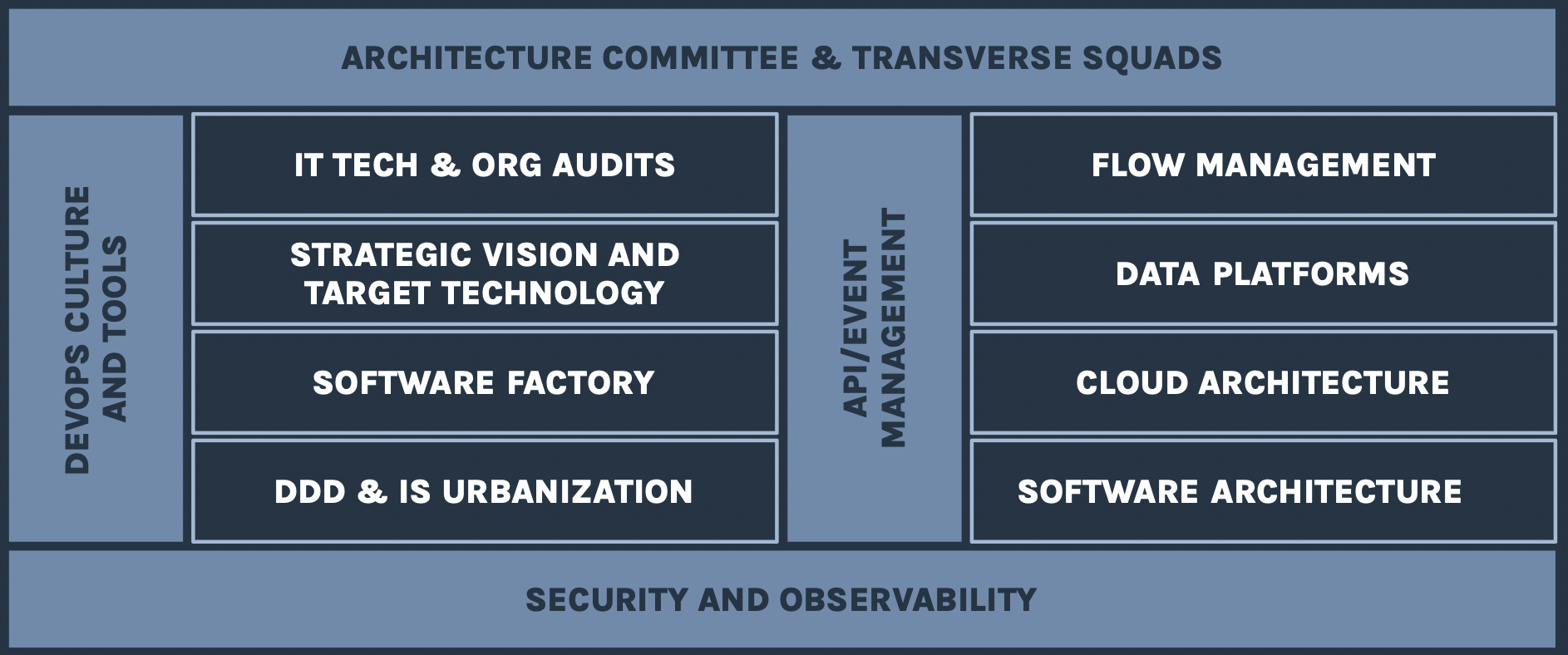
- Migrate applications to the cloud
- Implement an API Management and/or identity management strategy
- Audit my applications (TMC, Pentest, …)
- Improve our organization (DevOps, Agility, ..)
- Better define the roles of my applications
- Scoping, implementation and support for IS urbanization
- Choice of solution and integration of API/Event manager
- Enterprise architecture
- Cloud support: Move2Cloud, Cloud Native
- Securing platforms
- DevOps, Automation and Full Stack Observability
Frameworks & development
Clever Age is proficient in the leading programming languages and frameworks across major technological domains, such as PHP, Java, .NET, and JavaScript. These frameworks are instrumental in enhancing monolithic systems, building microservices, and managing APIs, enabling fast, secure, and standardized development.
In parallel with DevOps and DevSecOps practices, Clever Age’s technical teams can seamlessly integrate with client organizations and assist with custom development needs while adhering to methodologies, including Agile, and following established code development patterns.
SOFTWARE VENDOR
Enterprise architecture
Managing operational maintenance, evolution, and the introduction of new technological components to support your business is a complex and often siloed endeavor. The primary goal of enterprise architecture is to facilitate informed decision-making regarding technological investments, optimize business processes, improve operational efficiency, minimize risks, and ensure the longevity of IT systems.
We collaborate with your teams to analyze existing business and technical capabilities, identify opportunities and risks, and develop short, medium, and long-term proposals. Our aim is to create a systemic and holistic enterprise architecture strategy that aligns with your organization’s goals and objectives.
SOFTWARE VENDOR
Audit & Performance optimization, Monitoring/Alerting
Nullam porttitor tempor massa, eu vehicula massa vulputate at. In aliquet purus ut bibendum sagittis. Suspendisse potenti. Pellentesque eu neque vitae augue rhoncus mollis. Nullam in augue diam. Vivamus nec odio at felis ullamcorper mattis non ut ligula. Vestibulum tincidunt, turpis vel placerat ornare, orci odio feugiat purus, at feugiat risus ligula vitae ipsum. Cras at tellus sit amet lorem elementum vestibulum. Pellentesque sed egestas eros. Etiam sit amet mauris dui. Quisque fermentum est nunc, in dictum augue porttitor vitae. Etiam et lacinia tellus.
SOFTWARE VENDOR
API Management & Event Streaming
API management and event streaming are essential and complementary components of your information systems. APIs provide controlled access to data and services, while events enable an asynchronous architecture driven by event-triggered actions and reactions. These two concepts can be combined to achieve a more flexible, scalable, and decoupled architecture. This combination is particularly valuable in event-driven architectures where responsiveness and real-time information dissemination are crucial, and it also applies to IoT architectures.
sOFTWARE VENDOR
Devops, Security, Infra Cloud
evOps Methodology:
– Bridging the gap between Dev and Ops teams (including Security)
– Automation of the integration and deployment pipeline (CI/CD) : Automated testing, Automated deployments
– GitOps approach
– Containerization
– Infrastructure as Code
Security:
– Performing security audits (pentests) : Blackbox, GreyBox, Whitebox testing
– Incident response, Forensics
– SecOps approach
Shift security to the left : Employee training, Considering security constraints at project initiation, Automation (Static code analysis, Dynamic code analysis, Dynamic site analysis, Dedicated security team)
Cloud Infrastructure:
– Cloud migration advisory/strategy (Move to Cloud)
– Public Cloud managed services
– Infrastructure as Code
– FinOps (Financial Operations)
– SRE as a Service
sOFTWARE VENDOR
Domain Driven Design
Domain-Driven Design (DDD) is an approach to designing architectures that address complex or evolving needs. This collaborative approach is neither a technology nor a method, but a mindset during the design process. Its iterative cycle consists of three phases, which enable:
– Exploration: Discovering, understanding, and sharing needs.
– Drawing an architecture strategy: Decomposing, connecting, and organizing.
– Defining an implementation tactic to design and maintain the technical solution.
Regardless of the method used, it is essential to find one that works well with your teams. You may already have material to initiate or fuel the DDD approach.


























































